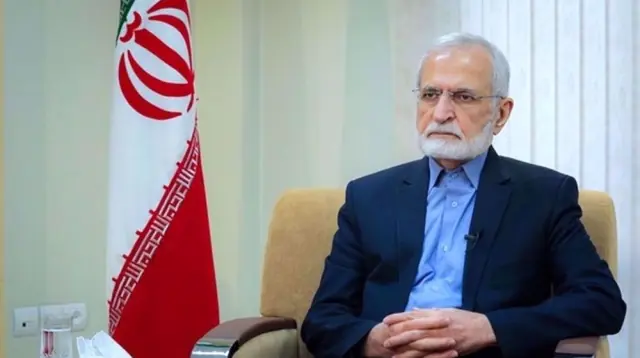Tensions in the Middle East have reached a new zenith as Iran issues a stark warning, hinting at a possible recalibration of its nuclear doctrine in response to perceived threats from Israel.
The declaration, made by Kamal Kharazi, an advisor to Iran’s supreme leader, has ignited concerns regarding the country’s intentions concerning nuclear weapons.
“We have no decision to build a nuclear bomb, but if Iran’s existence is threatened, there will be no choice but to change our military doctrine,” Kharazi affirmed, echoing sentiments expressed by Iranian leadership amidst mounting geopolitical tensions.
This statement comes amidst longstanding international scrutiny over Iran’s nuclear program and its adherence to international agreements.
Supreme Leader Ali Khamenei previously banned the development of nuclear weapons through a fatwa issued in the early 2000s, a stance reiterated in 2019. However, recent remarks from Iranian officials suggest a potential reassessment of this position.
In 2021, Iran’s former intelligence minister hinted that Western pressure could compel Tehran to reconsider its stance on nuclear weapons, fueling speculations about the country’s intentions.
Kharazi’s latest statement underscores the delicate power balance in the region and the complexities surrounding Iran’s nuclear ambitions.
The implications of Iran altering its nuclear doctrine are profound, potentially reshaping regional security dynamics and exacerbating tensions with neighboring countries and the international community at large.
As diplomatic efforts strive to navigate the intricate balance of power in the Middle East, the specter of a nuclear-armed Iran looms large, prompting urgent questions about the future of regional stability and global security.
Iran’s nuclear program has long been a contentious issue on the international stage. While Tehran maintains that its nuclear activities are for peaceful purposes, such as energy generation and medical research, suspicions persist regarding the country’s true intentions.
The Joint Comprehensive Plan of Action (JCPOA), commonly known as the Iran nuclear deal, was designed to address these concerns by imposing strict limitations on Iran’s nuclear activities in exchange for sanctions relief.
However, the 2018 withdrawal of the United States from the agreement and subsequent reimposition of sanctions have strained the deal and intensified tensions in the region.
The recent escalation in rhetoric from Iranian officials raises alarms about the potential unraveling of diplomatic efforts to contain Iran’s nuclear ambitions.
With the Middle East already beset by conflicts and instability, the prospect of a nuclear-armed Iran adds a perilous dimension to an already volatile region.
As the international community grapples with these developments, diplomatic channels remain crucial in averting a catastrophic escalation of tensions.
However, finding a peaceful resolution to the Iranian nuclear issue amidst heightened mistrust and hostility poses a formidable challenge for policymakers and diplomats alike.
In the absence of constructive dialogue and mutual trust, the specter of conflict looms ominously over the Middle East, underscoring the urgent need for concerted efforts to defuse tensions and uphold global security.
This article was created using automation technology and was thoroughly edited and fact-checked by one of our editorial staff members

